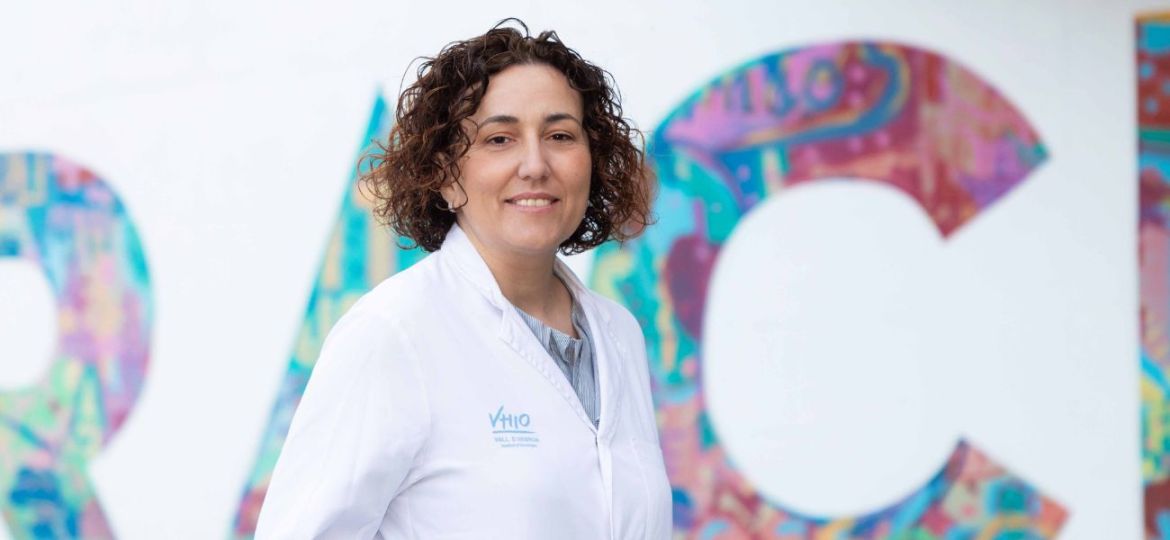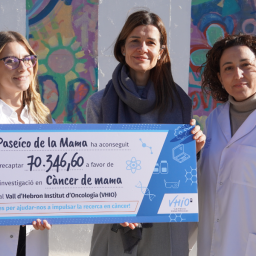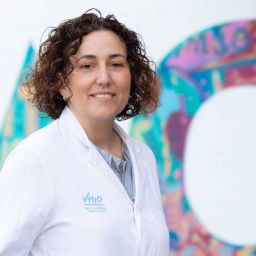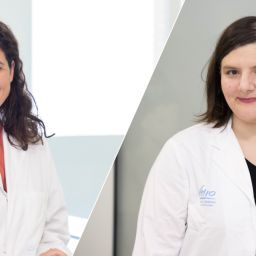
- Among the 518 women enrolled in the international POSITIVE clinical trial with hormone receptor-positive early breast cancer who temporarily interrupted adjuvant endocrine therapy to pursue pregnancy, 317 patients gave birth, of whom 196 breastfed.
- Results from this study for the first time demonstrate the possibility of breastfeeding in women with HR+ breast cancer and suggest that that there is no increased risk of disease recurrence in women who breastfed after giving birth on study.
- This study included patients from 20 countries, of whom 72 were enrolled from 18 Spanish hospitals and recruited through the SOLTI and GEICAM breast cancer research groups.
Follow-up results from the international POSITIVE study—coordinated in Spain by the SOLTI Clinical Cancer Research Group and the GEICAM Breast Cancer Research Group—show that breastfeeding in women with early hormone receptor-positive (HR+) breast cancer who temporarily interrupted treatment to pursue pregnancy is possible. Presented at the European Society for Medical Oncology (ESMO) Congress 2024 (1) in Barcelona, data demonstrate that at a median follow-up of 41 months, among those patients who gave birth on study, more than 60% (196 patients) breastfed without a negative impact on prognosis.
These follow-up data corroborate previously presented results from the POSITIVE trial that were published in high impact journals including The New England Journal of Medicine (2). Findings showed that the temporary interruption of adjuvant endocrine therapy to attempt pregnancy—under close medical surveillance and during a period of no more than two years—did not confer a greater short-term risk of disease recurrence among select young women under the age of 42 with previous HR+ early breast cancer.
This was the first objective of the study. To evaluate if those women who had at least one live birth on study could breastfeed and under what circumstances, breast feeding was a secondary endpoint of POSITIVE, results of which have now been presented at the ESMO Congress 2024.
Among the 518 women who were included in the POSITIVE study, 317 patients gave birth, of whom 196 were able to breast feed. A total of 232 babies were born.
“Almost two-thirds of women who gave birth on study breastfed, including half who did so for more than 4 months. While no impact on breast cancer-related events were observed in these patients, longer follow-up is essential to corroborate the data. Our results are particularly significant since hormone receptor-positive breast cancer is a tumor subtype that we must be especially cautious about since it may present a higher risk of disease relapse due increased levels of estrogen during pregnancy. For the time being, after limited follow-up, no higher relapse rates have been observed in women who breastfed after giving birth,” said Cristina Saura, coordinator of the POSITIVE study in Spain, member of SOLTI’s Board of Directors, and Head of the Vall d’Hebron University Hospital’s Breast Cancer Unit and Breast Cancer Group at VHIO.
Manuel Ruiz Borrego, co-coordinator of the POSITIVE study in Spain, member of GEICAM’s Board of Directors, and Head of the Breast Cancer Unit at the Virgen del Rocio Hospital in Seville, added, “Preliminary results from this present study are very promising for women with hormone receptor-positive breast cancer who wish to pursue pregnancy and breastfeeding after breast cancer without an apparent risk of disease relapse. Our findings suggest that temporarily interrupting endocrine therapy to breastfeed is safe and does not impact on the prognosis of these patients. Results also provide psychological relief to those who wish to opt for breastfeeding.”
Of the 196 women who breastfed on study (62%), 66% of patients had undergone breast-conserving surgery of the affected breast. Most of them breastfed through the non-affected breast alone, while 30% did so from both. 1.5% of women breastfed from the affected breast only. Among patients who had who had undergone a mastectomy (removal of the entire breast affected by the tumor), 1 in 3 were able to breastfeed from the other breast. Thus, only those women who had undergone a bilateral mastectomy (removal of both breasts during treatment) had to discard the possibility of breastfeeding.
Latest results from this study further support previous findings reported by the POSITIVE investigators that demonstrated the possibility of temporarily interrupting adjuvant endocrine therapy during a period of no longer than two years to attempt pregnancy. These preliminary data represented a significant development for young women under the age of 42 with previous HR+ early breast cancer wishing to subsequently pursue pregnancy. Up until the publication of these data, the recommendation for these patients has been to start attempting pregnancy having survived breast cancer for at least 5 years, free of disease recurrence.
“Depending on patient age, this window of time can frequently complicate family planning. The POSITIVE study was designed to help identify alternatives for those women who wish to become mothers after the diagnosis of localized breast cancer and reduce the time from diagnosis until the recommended time for these patients to start attempting pregnancy,” concluded Saura.
Spanish participation in POSITIVE
Patients from 20 countries participated in this study; 23% from North America, 16% from Asia/Pacific and the Middle East, and 61% from Europe, of whom 72 were enrolled from 18 Spanish hospitals and recruited through the SOLTI and GEICAM breast cancer research groups.
To evaluate the impact of temporarily stopping treatment of adjuvant endocrine therapy, 518 women under the age of 42 who had received between 18 to 30 months of prior therapy were enrolled. Study participants were strongly advised to resume endocrine therapy after attempting prengancy or a two-year interruption of treatment to pursue pregnancy.
While latest results of primary and secondary outcomes are at a median follow-up of 41 months, the researchers will continue to will therefore continue to follow-up study participants for 10 years to corroborate the results of this present study. This is particularly important considering that HR+ breast cancer recurrence can occur years after initial diagnosis.
The study is promoted and led worldwide by the International Breast Cancer Study Group (IBCSG), a division of the ETOP-IBCSG Partners Foundation, and the Alliance for Clinical Trials in Oncology in North America, in collaboration with the Breast International Group (BIG) through its member groups SOLTI and GEICAM in Spain.
###
References
- Session details
European Society for Medical Oncology Congress 2024, 13-17 September, Barcelona, Spain
Proffered paper session: Supportive and palliative care
Date: Saturday, 14.09.2024
Time: 14:45 – 16:25h
Chairs: Matteo Lambertini (Genova, Italy), Jayne E. Wood (London, United Kingdom)
1814O – Breastfeeding in women with hormone receptor-positive breast cancer who conceived after temporary interruption of endocrine therapy: Results from the POSITIVE trial
Speaker: Fedro A. Peccatori (Milan, Italy)
Lecture Time: 14:45 – 14:55h
- Partridge AH, Niman SM, Ruggeri M, Peccatori FA, Azim HA Jr, Colleoni M, Saura C, Shimizu C, Sætersdal AB, Kroep JR, Mailliez A, Warner E, Borges VF, Amant F, Gombos A, Kataoka A, Rousset-Jablonski C, Borstnar S, Takei J, Lee JE, Walshe JM, Ruíz-Borrego M, Moore HCF, Saunders C, Bjelic-Radisic V, Susnjar S, Cardoso F, Smith KL, Ferreiro T, Ribi K, Ruddy K, Kammler R, El-Abed S, Viale G, Piccart M, Korde LA, Goldhirsch A, Gelber RD, Pagani O; International Breast Cancer Study Group; POSITIVE Trial Collaborators. Interrupting Endocrine Therapy to Attempt Pregnancy after Breast Cancer. N Engl J Med. 2023 May 4;388(18):1645-1656.




















